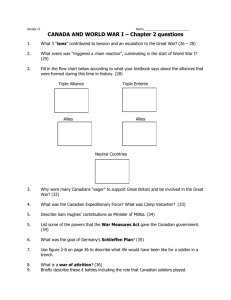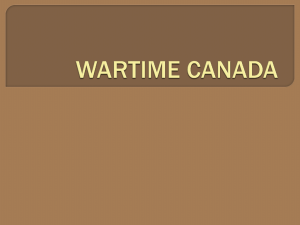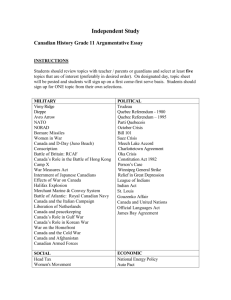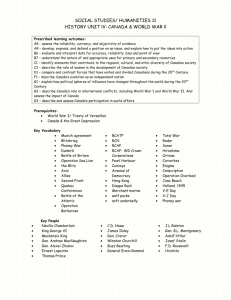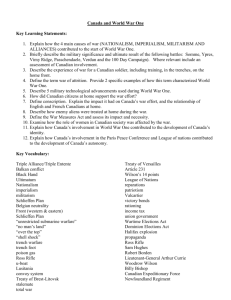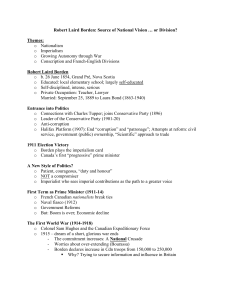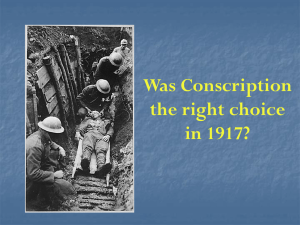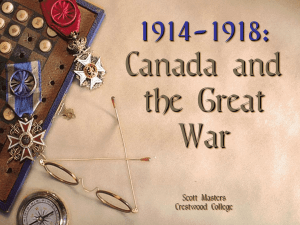0.CH. 2 KEY TERMS TEST REV
advertisement
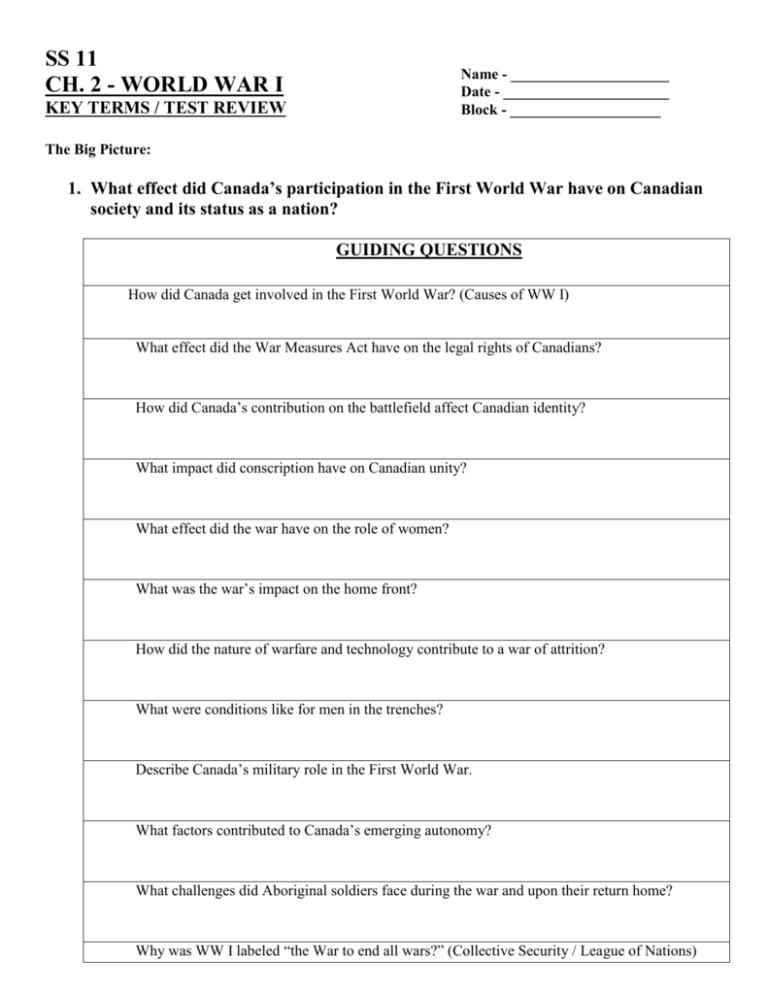
SS 11 CH. 2 - WORLD WAR I Name - _____________________ Date - ______________________ Block - ____________________ KEY TERMS / TEST REVIEW The Big Picture: 1. What effect did Canada’s participation in the First World War have on Canadian society and its status as a nation? GUIDING QUESTIONS How did Canada get involved in the First World War? (Causes of WW I) What effect did the War Measures Act have on the legal rights of Canadians? How did Canada’s contribution on the battlefield affect Canadian identity? What impact did conscription have on Canadian unity? What effect did the war have on the role of women? What was the war’s impact on the home front? How did the nature of warfare and technology contribute to a war of attrition? What were conditions like for men in the trenches? Describe Canada’s military role in the First World War. What factors contributed to Canada’s emerging autonomy? What challenges did Aboriginal soldiers face during the war and upon their return home? Why was WW I labeled “the War to end all wars?” (Collective Security / League of Nations) KEY TERMS/EVENTS/PEOPLE Causes of WW I Triple Alliance M Triple Entente A Balkans N Slavic I Black Hand A CEF C Balance of power Allies Blank Cheque Ross Rifle National identity War Measures Act Habeus Corpus Enemy Alien Internment Camp Profiteering Imperial Munitions Board Union Government Schlieffen Plan No Man’s Land Western Front War of attrition MAJOR BATTLES Merchant Marines Battle of Ypres Convoys Battle of the Somme U-boats Battle of Vimy Ridge Lusitania Passchendale Honour Rationing Galipoli Victory Bonds Total War Income Tax Propaganda Suffrage Halifax Explosion Conscription Crisis Military Service Act Conscientious Objectors Military Voters Act Khaki Election Wartime Elections Act THE END OF WAR Socialist Bolsheviks Central Powers Hundred Days Campaign Armistice Paris Peace Conference Treaty of Versailles War Guilt Clause Collective Security Sanctions League of Nations Spanish Influenza Canadian Autonomy Franz Ferdinand KEY PEOPLE Gavrilo Princip General Alfred Von Schlieffen General Helmuth von Moltke Lord Byng Kaiser Wilhelm Woodrow Wilson Robert Borden Georges Clemenceau David Loyd George Wilfred Laurier Robert Borden Sam Hughes Billy Bishop Clifford Sifton Henri Bourassa John McCrae Manfred von Richthofen Arthur Currie General Douglas Haig Wilfred ‘Wop’ May
